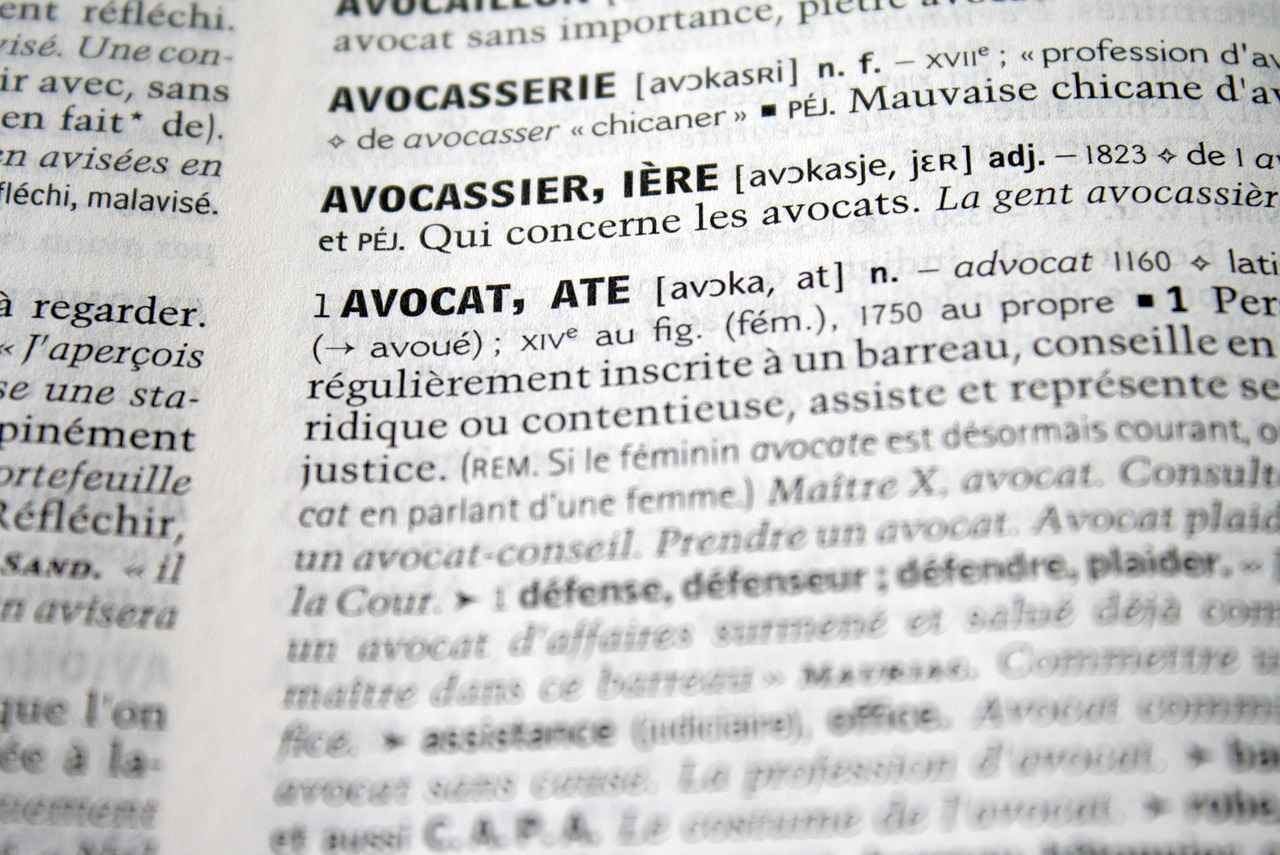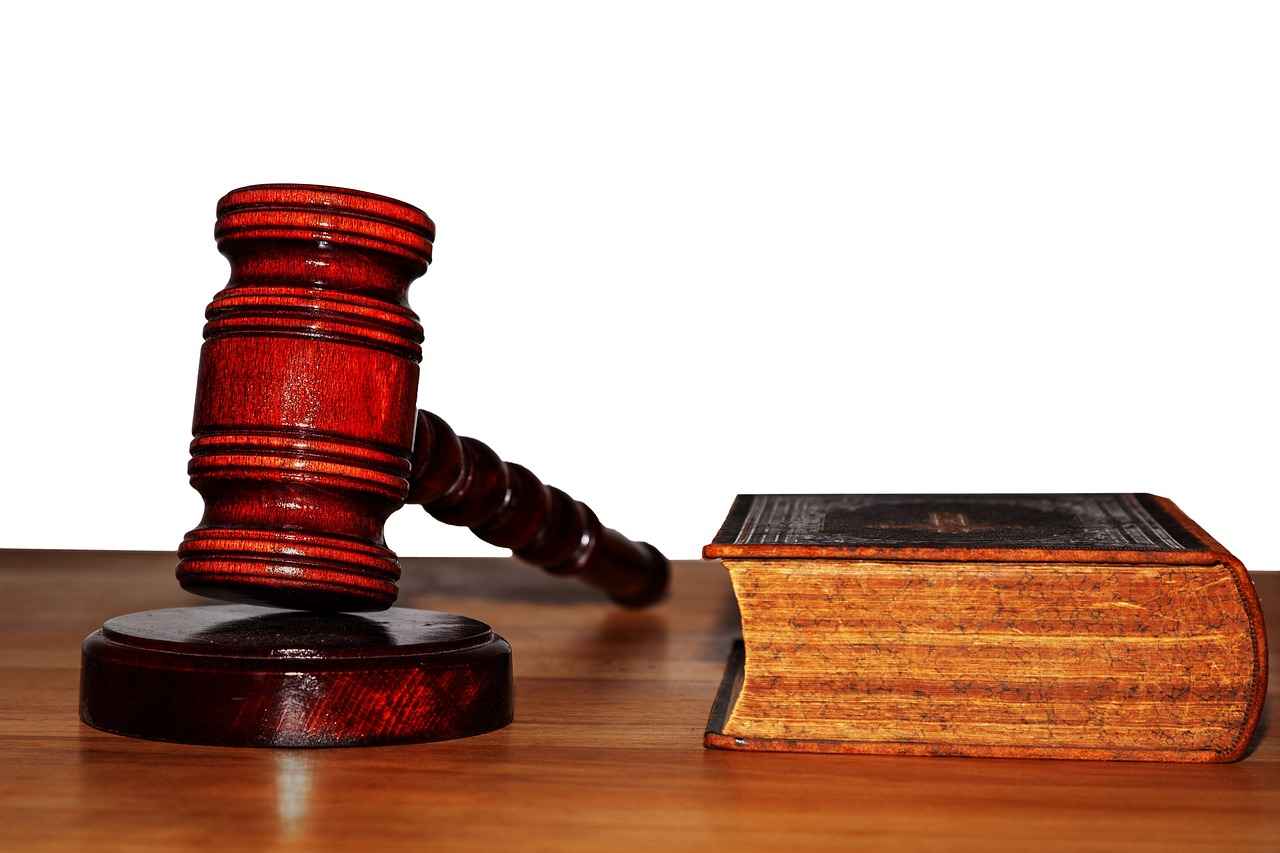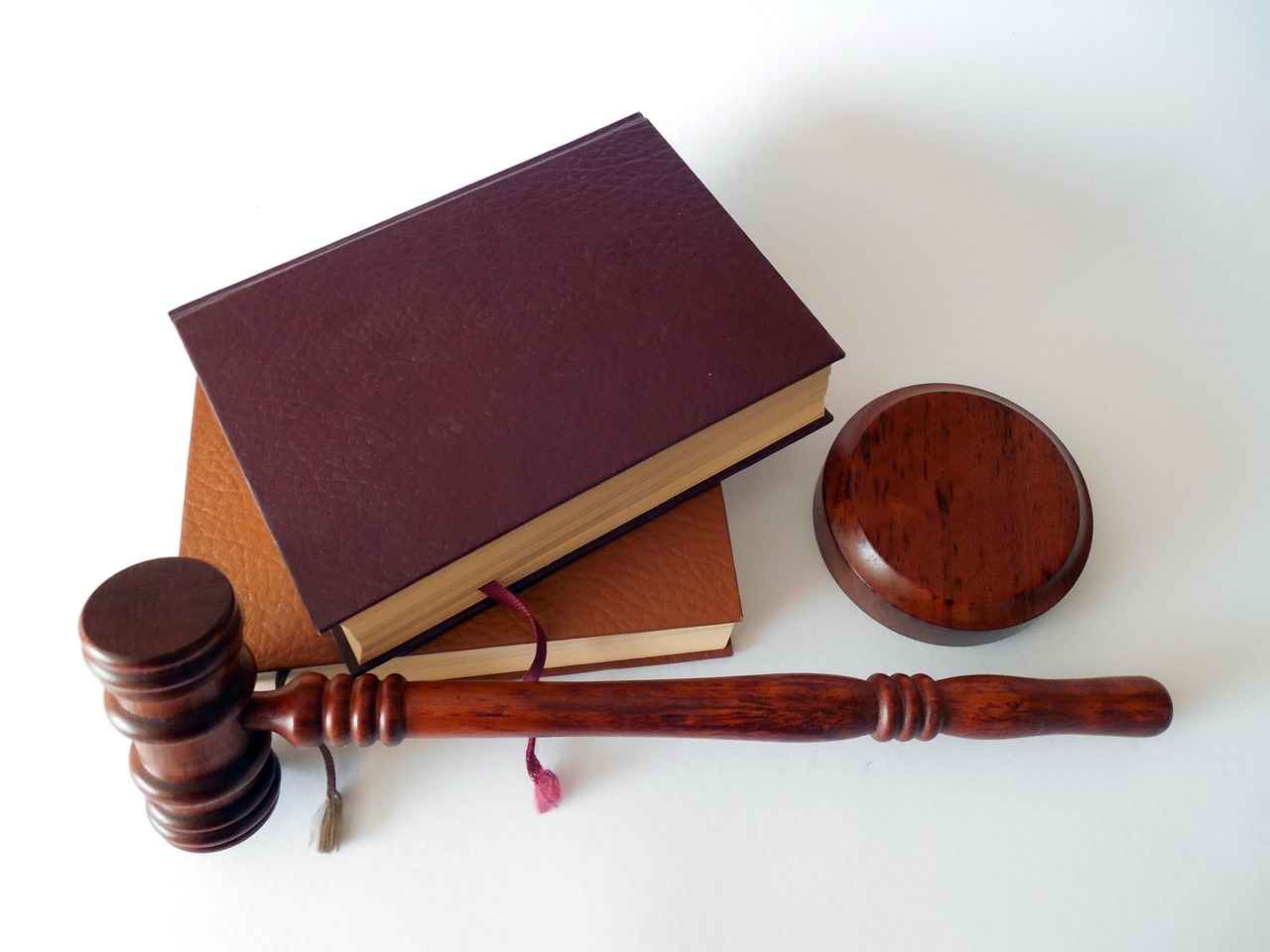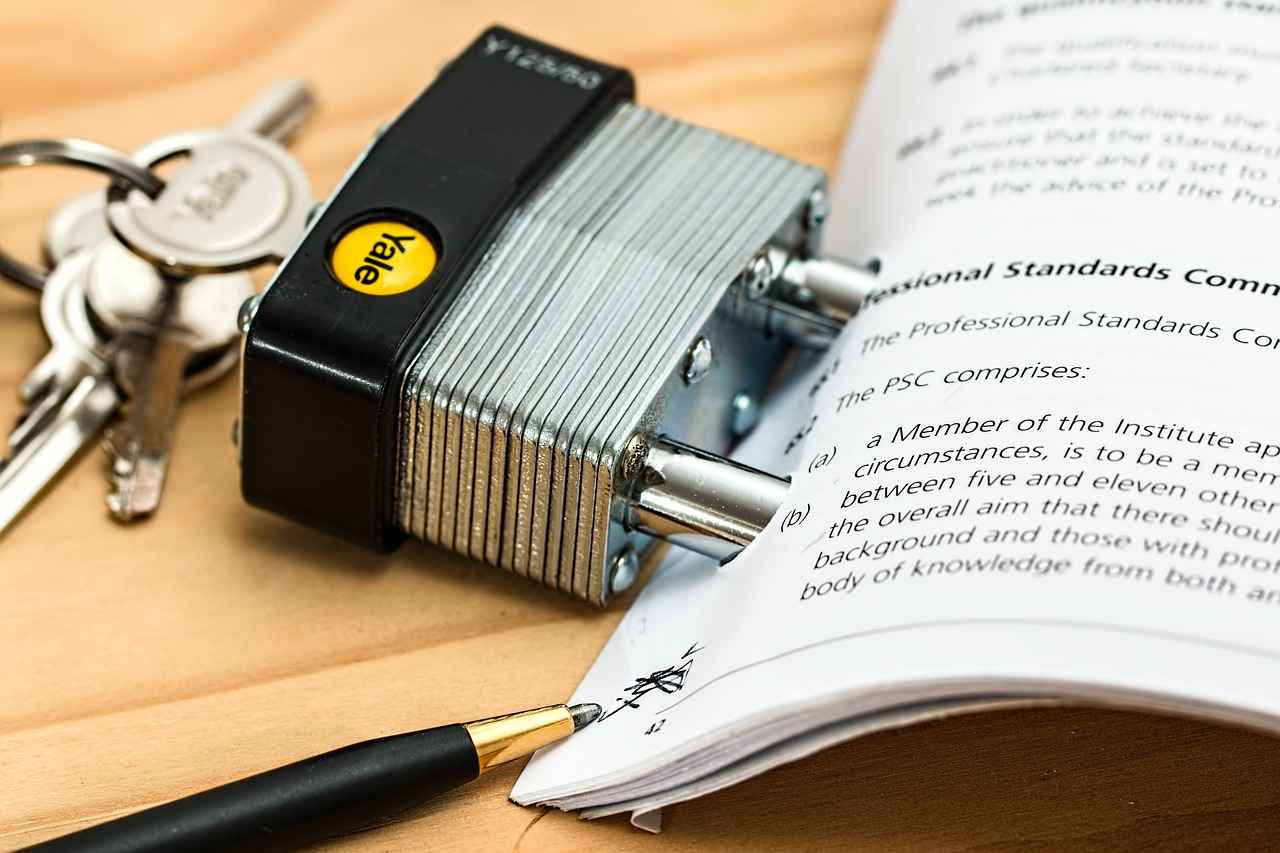This article provides a comprehensive guide on identifying qualified legal professionals in Fremont, California, covering various legal case types and offering practical tips for selecting the right attorney.
Finding the best lawyers and attorneys is crucial for navigating the complexities of the legal system. Whether you are facing a personal injury claim, a medical malpractice case, or any other legal issue, understanding how to identify the right legal representation can significantly impact the outcome of your case.
Personal injury cases often arise from incidents where an individual suffers harm due to another party’s negligence. To find a skilled personal injury lawyer, consider their track record with similar cases, client testimonials, and their ability to negotiate settlements. Look for attorneys who specialize in personal injury law and have a robust understanding of local laws and regulations.
Medical malpractice claims can be intricate, involving allegations that healthcare providers failed to deliver adequate care. When selecting a medical malpractice attorney, ensure they have experience in handling such cases and a solid understanding of medical standards. Check their credentials, including board certifications and any past litigation experience in medical cases.
Breach of contract disputes can occur in both personal and business contexts. When searching for a lawyer who specializes in contract law, examine their experience with similar disputes and their negotiation skills. Look for attorneys who are well-versed in the specific type of contract involved, whether it’s commercial or personal.
Property disputes can involve issues related to ownership, boundaries, or zoning. A knowledgeable real estate attorney can provide valuable guidance. When selecting a lawyer, inquire about their experience with property law and past cases similar to yours. Ensure they are familiar with local property laws and regulations.
Landlord-tenant disputes often arise over lease agreements, evictions, or property conditions. Understanding your rights as a tenant is essential. Seek an attorney who specializes in tenant rights and has a proven record in resolving landlord-tenant conflicts. Look for those who offer free consultations to discuss your case.
Defamation cases, including libel and slander, require a nuanced understanding of both free speech and reputation. Finding an attorney experienced in defamation law is vital. Review their history of handling such cases and their success rates. Ensure they understand the complexities involved in proving defamation.
Employment disputes can encompass wrongful termination, discrimination, and wage issues. An attorney familiar with labor laws can provide essential support. When choosing a lawyer, ask about their experience in employment law and their familiarity with local labor regulations. Look for those who have successfully represented employees in similar situations.
Product liability cases arise when consumers are harmed by defective products. Identifying a lawyer with experience in this area can help victims seek compensation. Look for attorneys who have a strong background in consumer protection and product liability law. Check their previous case outcomes to gauge their effectiveness.
Wrongful death claims involve legal action taken when a person dies due to another’s negligence. Finding a compassionate attorney experienced in these sensitive cases is crucial. Seek lawyers who specialize in wrongful death and have a proven track record of handling similar claims with empathy and professionalism.
Class action lawsuits allow groups of individuals to sue collectively for similar grievances. Understanding how to find a lawyer who specializes in class actions is important. Look for attorneys who have successfully led class action suits and have substantial resources to handle complex litigation.
Assault and battery cases can lead to severe consequences. Securing a knowledgeable criminal defense attorney is essential for anyone facing such charges. When searching for a lawyer, consider their experience in criminal defense and their familiarity with local laws. Look for attorneys who have successfully defended clients in similar cases.
Drug offenses can range from possession to trafficking. Finding an attorney with experience in drug-related cases can significantly impact the outcome of legal proceedings. Seek lawyers who are well-versed in drug laws and have a history of defending clients in drug-related cases.
Theft and burglary cases involve serious legal implications. Engaging an attorney who specializes in criminal law is crucial for those accused of these crimes. Look for lawyers who have a strong background in defending theft and burglary cases and understand the potential defenses available.

Understanding Personal Injury Cases
Personal injury cases are a significant aspect of the legal landscape, involving harm inflicted upon an individual due to the negligence or intentional actions of another party. These cases can encompass a wide range of incidents, including car accidents, slip and falls, workplace injuries, and even medical malpractice. With the complexities involved in establishing liability and the need for substantial evidence, it is crucial to engage a skilled personal injury lawyer to navigate the legal process effectively.
When searching for a personal injury attorney, consider the following steps to ensure you find a qualified professional:
- Research and Referrals: Start by seeking recommendations from friends, family, or colleagues who have had positive experiences with personal injury lawyers. Online platforms such as Avvo and FindLaw also provide reviews and ratings for attorneys in your area.
- Check Credentials: Look for lawyers who specialize in personal injury law and have a proven track record of successful case outcomes. Verify their credentials, including education, bar association membership, and any additional certifications.
- Experience Matters: Choose an attorney with substantial experience handling cases similar to yours. A lawyer who has dealt with your specific type of injury or accident will have a deeper understanding of the nuances involved.
- Initial Consultation: Most personal injury lawyers offer free consultations. Use this opportunity to ask about their experience, approach to your case, and potential strategies. Pay attention to how they communicate; a good attorney should be able to explain legal concepts in a way that you can understand.
- Fee Structure: Understand the lawyer’s fee structure before hiring them. Many personal injury attorneys work on a contingency fee basis, meaning they only get paid if you win your case. Ensure you are clear on the percentage they will take and any additional costs you may incur.
- Trust Your Instincts: Finally, trust your gut feeling. You should feel comfortable and confident in your attorney’s abilities and approach. If something feels off, it’s okay to continue your search.
In summary, personal injury cases can be complex and challenging. By following these guidelines and taking the time to find a qualified attorney, you can significantly improve your chances of a successful claim. Remember, the right lawyer not only understands the law but also empathizes with your situation, which is essential for navigating the emotional and legal challenges ahead.
Key Takeaways:
- Seek referrals and conduct thorough research.
- Verify credentials and experience.
- Utilize initial consultations to gauge compatibility.
- Understand the fee structure before committing.
- Trust your instincts when making a decision.

Navigating Medical Malpractice Claims
Medical malpractice cases represent a significant segment of personal injury law, arising when healthcare providers fail to adhere to the established standards of care. This failure can result in serious harm to patients, leading to physical, emotional, and financial repercussions. Understanding the intricacies of these cases is crucial for anyone considering legal action against a medical professional.
To successfully navigate a medical malpractice claim, it is essential to gather sufficient evidence demonstrating that the healthcare provider’s actions were negligent. This may include obtaining medical records, expert testimonies, and documentation of the injury sustained. The burden of proof lies with the plaintiff, making it imperative to establish that the provider’s care fell below the accepted standard.
When seeking a qualified medical malpractice attorney, consider the following factors:
- Experience and Specialization: Look for attorneys who specialize in medical malpractice and have a proven track record in handling similar cases. Their experience can significantly influence the outcome of your claim.
- Reputation: Research the attorney’s reputation within the legal community. Online reviews, testimonials, and professional ratings can provide insight into their capabilities and ethics.
- Initial Consultation: Many attorneys offer free initial consultations. Use this opportunity to discuss your case and gauge their understanding and approach to your situation.
- Fee Structure: Understand the attorney’s fee structure. Most medical malpractice attorneys work on a contingency fee basis, meaning they only get paid if you win your case. Ensure you clarify any additional costs that may arise during the process.
Additionally, it is essential to be aware of the statute of limitations for filing a medical malpractice claim, which varies by state. Delaying action can result in losing the right to seek compensation, making timely legal advice critical.
Another critical aspect is the selection of expert witnesses. In medical malpractice cases, expert testimony is often necessary to establish the standard of care and demonstrate how the healthcare provider deviated from it. A competent attorney will have access to medical experts who can substantiate your claims and enhance the credibility of your case.
Furthermore, be prepared for the possibility of a lengthy legal process. Medical malpractice cases can take months or even years to resolve due to their complexity. Patience and ongoing communication with your attorney are vital during this time.
In conclusion, navigating medical malpractice claims requires a comprehensive understanding of legal procedures, medical standards, and the ability to effectively communicate your case. By selecting an experienced attorney and being proactive in gathering evidence and understanding your rights, you can enhance your chances of a favorable outcome.

Addressing Breach of Contract Issues
Breach of contract disputes can arise in various contexts, affecting both businesses and individuals. These disputes occur when one party fails to fulfill their obligations as outlined in a legally binding agreement. Understanding the nuances of breach of contract is essential for anyone involved in such a situation, whether it involves a business deal, a service agreement, or a personal contract.
When addressing breach of contract issues, the first step is to identify the type of breach that has occurred. There are typically three main types of breaches:
- Minor Breach: This occurs when a party fails to perform a small part of the contract, which does not significantly affect the overall agreement.
- Material Breach: A material breach is more serious and occurs when one party’s failure to perform undermines the contract’s value, allowing the other party to seek damages.
- Anticipatory Breach: This happens when one party indicates they will not fulfill their contractual obligations before the performance is due.
To effectively resolve breach of contract disputes, it is crucial to find a lawyer with expertise in contract law. Here are some practical tips for locating the right attorney:
- Research Credentials: Look for attorneys who specialize in contract law and have a proven track record in handling breach of contract cases. Check their education, experience, and any relevant certifications.
- Seek Recommendations: Ask for referrals from friends, family, or colleagues who have had similar legal issues. Personal experiences can provide valuable insights into a lawyer’s competence and reliability.
- Utilize Online Platforms: Websites like Avvo, Martindale-Hubbell, and LegalMatch can help you find qualified attorneys based on your specific needs and location. These platforms often include client reviews and ratings.
- Initial Consultation: Schedule consultations with potential lawyers to discuss your case. This meeting allows you to gauge their understanding of your situation and their approach to resolving it.
- Evaluate Communication Skills: A good attorney should be able to explain complex legal concepts in a way that you can understand. Clear communication is essential for a successful attorney-client relationship.
In addition to finding the right lawyer, it is also important to be aware of the red flags when hiring an attorney:
- Lack of Experience: Avoid attorneys who do not have specific experience in breach of contract cases, as they may not be familiar with the nuances of contract law.
- High Pressure Tactics: Be cautious of lawyers who push you to make quick decisions or sign contracts without fully understanding the implications.
- Poor Communication: If an attorney is unresponsive or fails to answer your questions during the initial consultation, it may indicate how they will handle your case.
Ultimately, addressing breach of contract issues requires a careful approach. By taking the time to find a qualified attorney and being aware of the potential pitfalls, you can navigate the complexities of contract disputes more effectively. Remember that a strong legal advocate can make a significant difference in the outcome of your case, ensuring that your rights are protected and that you receive the compensation you deserve.

Resolving Property Disputes
Property disputes can arise in various contexts, often involving issues related to ownership, boundaries, or zoning regulations. These disputes can be complex and emotionally charged, as they often affect individuals’ living situations and financial investments. Engaging a knowledgeable real estate attorney is crucial for navigating these intricate legal matters effectively.
In the realm of property disputes, ownership issues may arise when multiple parties claim rights to the same property. This can occur due to unclear titles, inheritance disputes, or fraudulent claims. A skilled attorney can conduct thorough title searches and help establish clear ownership, ensuring that clients’ rights are protected.
Boundary disputes are another common issue, often stemming from unclear property lines or encroachments. Homeowners may find themselves in conflict with neighbors over fences, trees, or other structures that may infringe on property boundaries. An experienced real estate attorney can assist in resolving these disputes through negotiation or, if necessary, litigation.
Zoning issues can also lead to significant property disputes, particularly in urban areas where land use regulations are strict. Property owners may face challenges in obtaining permits for renovations, building new structures, or changing the use of their property. A knowledgeable attorney can guide clients through the zoning application process and represent their interests at zoning board hearings.
When seeking legal representation for property disputes, individuals should consider several factors:
- Experience: Look for an attorney with a proven track record in real estate law and property disputes.
- Local Knowledge: An attorney familiar with local laws and regulations can provide invaluable insights.
- Communication: Choose a lawyer who communicates clearly and keeps clients informed throughout the process.
- Client Reviews: Research online reviews and testimonials to gauge the attorney’s reputation.
Red flags to avoid include attorneys with poor communication skills, a lack of relevant experience, or those who pressure clients into quick decisions without fully exploring options. By taking the time to select the right attorney, individuals can improve their chances of a favorable resolution in property disputes.
In summary, property disputes often involve intricate legal challenges concerning ownership, boundaries, and zoning issues. Engaging a knowledgeable real estate attorney is essential for effectively navigating these disputes and protecting one’s interests. By considering experience, local knowledge, communication, and client reviews, individuals can find the right legal representation to guide them through these complex matters.

Landlord-Tenant Disputes: What to Know
Landlord-tenant disputes are a common occurrence in the rental market, often stemming from misunderstandings or disagreements regarding lease agreements, property conditions, and eviction processes. These disputes can lead to significant stress for both parties involved. Therefore, it is crucial for tenants to be aware of their rights and responsibilities, as well as the legal options available to them.
Understanding Tenant Rights
Tenants have specific rights that are designed to protect them in their rental agreements. These rights can vary by state, but generally include:
- Right to a Habitable Home: Landlords are required to maintain rental properties in a condition that is safe and livable. This includes ensuring that plumbing, heating, and electrical systems are functioning properly.
- Right to Privacy: Landlords must provide notice before entering a tenant’s unit, except in emergencies.
- Protection Against Retaliation: Tenants cannot be evicted or face harassment for exercising their legal rights, such as reporting unsafe conditions.
Common Causes of Disputes
Several issues can lead to landlord-tenant disputes, including:
- Lease Agreement Violations: Disagreements may arise over the terms of the lease, such as unauthorized pets or subletting.
- Evictions: Landlords may seek to evict tenants for non-payment of rent or lease violations, which can lead to legal battles.
- Property Maintenance Issues: Disputes often occur when tenants feel that their landlord is not addressing necessary repairs or maintenance.
Finding a Reliable Attorney
When faced with a landlord-tenant dispute, finding a qualified attorney can make a significant difference in the outcome. Here are some steps to consider:
- Look for Specialization: Seek attorneys who specialize in landlord-tenant law. Their expertise will be invaluable in navigating the complexities of your case.
- Check Credentials: Verify the attorney’s credentials, including their education, experience, and any relevant certifications.
- Read Reviews: Look for client reviews and testimonials to gauge the attorney’s reputation and success rate.
- Consult Multiple Attorneys: Schedule consultations with several attorneys to find one who is a good fit for your needs and who communicates effectively.
Red Flags to Avoid
When searching for legal representation, be cautious of the following red flags:
- Lack of Transparency: An attorney who is unwilling to discuss fees or the specifics of their services may not be trustworthy.
- High Pressure Tactics: Be wary of attorneys who pressure you to sign contracts or make quick decisions.
- Poor Communication: If an attorney is difficult to reach or does not respond promptly to inquiries, it may be a sign of potential issues down the road.
In summary, understanding your rights as a tenant and knowing how to find a reliable attorney can help you effectively navigate landlord-tenant disputes. By being informed and proactive, you can protect your interests and work towards a resolution that is fair and just.

Defamation Cases: Libel and Slander Explained
Defamation cases, which include libel (written statements) and slander (spoken statements), represent a complex intersection between free speech and the protection of an individual’s reputation. In today’s digital age, where information spreads rapidly through social media and online platforms, understanding the nuances of defamation law is more crucial than ever.
When considering a defamation case, it is essential to establish whether the statement in question is false and whether it has caused harm to the plaintiff’s reputation. The burden of proof typically lies with the plaintiff, who must demonstrate that the statement was made with actual malice—meaning that the defendant either knew the statement was false or acted with reckless disregard for the truth.
Finding an attorney with experience in defamation law is vital for navigating these often intricate cases. Here are some practical tips for selecting the right legal representation:
- Research Specialization: Look for attorneys who specialize in defamation law. Their expertise will be invaluable in understanding the intricacies of your case.
- Check Credentials: Verify the attorney’s credentials, including their education, years of experience, and any relevant certifications in media or defamation law.
- Read Reviews: Online reviews and testimonials can provide insights into an attorney’s reputation and success rate in handling defamation cases.
- Initial Consultation: Many attorneys offer free initial consultations. Use this opportunity to discuss your case and gauge the attorney’s understanding and approach.
- Avoid Red Flags: Be wary of attorneys who promise guaranteed outcomes or those who lack a clear strategy for your case.
In major metropolitan areas like New York City, Los Angeles, and Chicago, the competition among legal professionals can be fierce. Utilize legal directories such as Avvo or FindLaw to compare attorneys and find those who have a proven track record in defamation cases. Additionally, consider reaching out to local bar associations, which often provide referral services to qualified attorneys.
Defamation cases can also involve complex issues surrounding public figures. If you are a public figure, the standard for proving defamation is higher, requiring proof of actual malice. This legal distinction emphasizes the importance of having an attorney who understands both the legal and reputational implications of your case.
In summary, navigating defamation cases requires a thorough understanding of the law and careful consideration when selecting legal representation. By following the tips outlined above and engaging with experienced attorneys, you can better protect your rights and reputation in the face of potentially damaging statements.

Employment Disputes and Your Rights
Employment disputes are a significant concern for many workers across the United States. These disputes can arise from various issues, including wrongful termination, discrimination, and wage-related problems. Understanding your rights in the workplace is crucial, and having a qualified attorney can make a substantial difference in navigating these complex situations.
One of the most common forms of employment dispute is wrongful termination. This occurs when an employee is fired for reasons that violate federal or state laws, such as discrimination based on race, gender, or disability. If you believe you have been wrongfully terminated, it is essential to consult with an attorney who specializes in labor law. They can help you assess your situation, gather necessary documentation, and determine the best course of action.
Discrimination in the workplace can take many forms, including unequal treatment in hiring, promotions, or job assignments based on protected characteristics. If you suspect that you have faced discrimination, it is vital to document incidents and seek legal counsel. An experienced attorney can guide you through the process of filing a complaint with the Equal Employment Opportunity Commission (EEOC) or pursuing a lawsuit if necessary.
Another critical area of concern is wage issues, which can include unpaid overtime, minimum wage violations, or improper deductions. Employees have the right to fair compensation for their work, and if you feel that your employer has violated wage laws, it is crucial to consult with a lawyer who understands the Fair Labor Standards Act (FLSA) and state-specific wage laws.
In Fremont, California, as well as in other major metropolitan areas, finding the right attorney for employment disputes can be daunting. Here are some practical tips for locating a qualified legal professional:
- Research Online: Utilize legal directories such as Avvo, FindLaw, or the American Bar Association’s website to find attorneys who specialize in employment law.
- Check Credentials: Look for attorneys with experience in employment law and a track record of success in similar cases. Verify their education, bar admissions, and any relevant certifications.
- Read Reviews: Client testimonials and reviews can provide insight into an attorney’s reputation and effectiveness. Look for feedback on their communication style and case outcomes.
- Consultations: Many attorneys offer free initial consultations. Use this opportunity to discuss your case, assess their expertise, and determine if you feel comfortable working with them.
- Avoid Red Flags: Be cautious of attorneys who guarantee specific outcomes, charge exorbitant fees without clear explanations, or discourage you from seeking a second opinion.
In conclusion, employment disputes can be challenging and emotionally taxing. Understanding your rights and seeking the help of a knowledgeable attorney can empower you to address these issues effectively. Whether you are facing wrongful termination, discrimination, or wage disputes, the right legal support can help protect your rights and ensure a fair resolution.

Product Liability Cases: What You Need to Know
Product liability cases represent a critical area of law focused on protecting consumers from harm caused by defective products. These cases arise when a product fails to meet safety standards, leading to injury or damage. Understanding the various aspects of product liability can empower consumers to seek justice and compensation for their suffering.
There are three primary types of product defects that can lead to liability claims: design defects, manufacturing defects, and marketing defects. Design defects occur when the product’s design is inherently unsafe, regardless of the manufacturing process. Manufacturing defects arise from errors during the production phase, leading to unsafe products reaching consumers. Marketing defects, on the other hand, involve inadequate warnings or instructions that fail to inform users about potential risks associated with the product.
When pursuing a product liability case, it is crucial to gather evidence supporting your claim. This may include:
- Medical records documenting injuries sustained.
- Receipts or proof of purchase for the defective product.
- Photographs of the product and the injuries incurred.
- Witness statements corroborating the incident.
Finding a qualified lawyer experienced in product liability law is essential for navigating these complex cases. Here are some practical tips for locating the right attorney:
- Research and Referrals: Start by asking friends or family for recommendations. Online legal directories and review platforms can also provide valuable insights into potential lawyers.
- Check Credentials: Look for attorneys with specific experience in product liability cases. Check their educational background, years of practice, and any professional affiliations with legal organizations.
- Initial Consultation: Take advantage of free consultations offered by many attorneys. Use this opportunity to discuss your case and assess the lawyer’s expertise and communication style.
- Evaluate Success Rates: Inquire about the attorney’s track record in handling product liability cases. A lawyer with a history of successful outcomes may be better equipped to handle your claim.
Additionally, be aware of red flags when selecting a lawyer. Avoid attorneys who:
- Pressure you into signing contracts quickly.
- Make unrealistic promises about the outcome of your case.
- Do not provide clear fee structures or explain costs associated with your case.
In major metropolitan areas like New York City, Los Angeles, and Chicago, the legal landscape can be competitive. Utilize local bar association resources, which often provide referral services to help you find qualified attorneys in your area. Online platforms like Avvo and FindLaw can also assist in your search by offering ratings, reviews, and detailed profiles of lawyers.
In conclusion, product liability cases can be complex and challenging, but with the right legal representation, victims can pursue the compensation they deserve. By taking the time to research and select a qualified attorney, individuals can navigate the legal system more effectively and protect their rights as consumers.

Understanding Wrongful Death Claims
Wrongful death claims represent a significant area of personal injury law, focusing on the tragic loss of life due to another’s negligence or intentional actions. These cases are often emotionally charged and legally complex, requiring not only a deep understanding of the law but also a compassionate approach to the grieving families involved. If you find yourself in this unfortunate situation, knowing how to navigate the legal landscape and find the right attorney is crucial.
What Constitutes a Wrongful Death Claim?
A wrongful death claim arises when an individual dies as a result of someone else’s wrongful act, which could be due to negligence, such as in car accidents, medical malpractice, or defective products. The claim is typically filed by the deceased person’s family members or estate representatives, seeking compensation for losses incurred, including funeral expenses, lost wages, and emotional suffering.
Finding the Right Attorney
When searching for a qualified attorney to handle a wrongful death claim, consider the following:
- Experience: Look for attorneys who specialize in wrongful death cases. Their experience will be invaluable in navigating the complexities of your case.
- Compassion: Choose a lawyer who demonstrates empathy and understanding of your situation. The emotional toll of losing a loved one can be overwhelming, and having a supportive attorney can make a significant difference.
- Track Record: Research the attorney’s success rate in handling wrongful death claims. A proven track record can provide reassurance regarding their capabilities.
Where to Look for Attorneys
In major metropolitan areas like New York City, Los Angeles, and Chicago, there are numerous resources available to help you find the right legal representation:
- State Bar Association: Each state has a bar association that offers referral services to connect you with qualified attorneys.
- Online Legal Directories: Websites like Avvo and FindLaw provide listings of attorneys, including reviews and ratings from previous clients.
- Personal Referrals: Ask friends, family, or colleagues if they can recommend an attorney who specializes in wrongful death cases.
Questions to Ask Potential Attorneys
When interviewing potential attorneys, consider asking the following questions:
- What is your experience with wrongful death claims?
- Can you provide references from past clients?
- What is your fee structure, and do you work on a contingency basis?
- How will you communicate with me throughout the process?
Red Flags to Avoid
While searching for an attorney, be cautious of certain warning signs that may indicate a lack of professionalism or expertise:
- Vague answers to your questions or reluctance to provide details about their experience.
- High-pressure tactics to secure your business immediately.
- A lack of transparency regarding fees and potential costs.
In conclusion, navigating a wrongful death claim can be daunting, but with the right attorney by your side, you can seek justice for your loved one. Take the time to research and find an attorney who not only understands the legalities involved but also shows genuine compassion for your situation. This combination of expertise and empathy will be vital as you move forward during such a challenging time.

Class Action Lawsuits: When to Join One
Class action lawsuits represent a powerful legal tool that enables groups of individuals to collectively seek justice for similar grievances. These lawsuits are particularly effective in cases where individual claims may be too small to warrant separate legal action, allowing plaintiffs to pool their resources and present a united front against larger entities, such as corporations or government agencies. Understanding the nuances of class action lawsuits is essential, especially when it comes to finding a qualified attorney who specializes in this area of law.
What Constitutes a Class Action Lawsuit?
A class action lawsuit typically involves numerous plaintiffs who have experienced similar harm or injustice due to the actions of a single defendant or a group of defendants. Common examples of class action cases include:
- Consumer fraud: Cases involving deceptive business practices, such as false advertising or defective products.
- Employment issues: Situations where a company may have violated labor laws affecting a large group of employees.
- Environmental disasters: Lawsuits stemming from pollution or other environmental harms impacting communities.
How to Identify a Class Action Attorney
Finding the right attorney for a class action lawsuit requires careful consideration. Here are some steps to guide you:
- Research Experience: Look for attorneys who have a proven track record in handling class action cases. Check their case history and outcomes.
- Check Credentials: Ensure that the lawyer is licensed to practice in your state and has relevant certifications or memberships in professional organizations.
- Read Reviews: Online reviews and testimonials can provide insight into the attorney’s reputation and the experiences of previous clients.
- Consult Multiple Attorneys: Schedule consultations with several attorneys to discuss your case and gauge their expertise and approach.
Key Considerations When Joining a Class Action
Before joining a class action lawsuit, consider the following:
- Understand the Process: Familiarize yourself with how class actions work, including the potential time frame and what to expect during the litigation process.
- Know Your Rights: Ensure you understand your rights as a class member, including any obligations you may have and how settlements are distributed.
- Stay Informed: Keep in touch with your attorney and stay updated on the progress of the case. This will help you remain aware of any developments or changes.
Red Flags to Avoid
When selecting a class action attorney, be cautious of the following red flags:
- Lack of Experience: Avoid attorneys who do not have a history of handling class action lawsuits.
- High Fees Without Transparency: Be wary of attorneys who do not provide clear information about their fee structures.
- Poor Communication: An attorney who is difficult to reach or does not respond promptly to inquiries may not be the best choice.
In summary, class action lawsuits offer a vital means for individuals to seek justice collectively. By understanding the process and knowing how to find a qualified attorney, individuals can enhance their chances of a successful outcome. Whether you are in a major metropolitan area like New York City or Los Angeles, or smaller communities, the principles of finding the right legal representation remain consistent. Always prioritize experience, communication, and transparency when choosing an attorney for your class action case.

Assault and Battery Charges: Legal Representation
When faced with assault and battery charges, individuals can experience significant stress and anxiety due to the potential legal repercussions. These charges can lead to severe consequences, including hefty fines, imprisonment, and a permanent criminal record. Therefore, securing a knowledgeable criminal defense attorney is essential for anyone navigating these challenging legal waters.
Understanding the nuances of assault and battery laws is crucial, as these terms can often be misunderstood. Assault generally refers to the threat or attempt to inflict harm, while battery involves actual physical contact. The severity of the charges can range from misdemeanors to felonies, depending on factors such as the extent of the injury and the relationship between the parties involved.
To find the best legal representation, consider the following steps:
- Research Local Attorneys: Start by searching for criminal defense attorneys in your area. Websites like Avvo and FindLaw provide directories of attorneys along with client reviews and ratings.
- Check Credentials: Look for attorneys who specialize in criminal defense, specifically those with experience handling assault and battery cases. Verify their credentials, including education, bar association membership, and any additional certifications.
- Schedule Consultations: Many attorneys offer free initial consultations. Use this opportunity to discuss your case and gauge their understanding and approach. Pay attention to how they communicate and whether they seem genuinely interested in your situation.
- Ask About Experience: Inquire about their experience with cases similar to yours. A lawyer with a proven track record in assault and battery cases will be more equipped to navigate the complexities of your situation.
- Discuss Fees: Understanding the attorney’s fee structure is crucial. Some may charge hourly rates, while others might work on a contingency basis. Ensure that you are comfortable with the financial arrangements before proceeding.
Additionally, look for red flags when selecting a lawyer. Avoid attorneys who make unrealistic promises or guarantees regarding the outcome of your case. Be cautious of those who pressure you into making quick decisions or who lack transparency about their fees and processes.
In conclusion, navigating assault and battery charges requires a strategic approach to finding the right legal representation. By conducting thorough research, checking credentials, and being mindful of red flags, individuals can secure a competent attorney who will advocate for their rights and work towards the best possible outcome.

Dealing with Drug Offenses and Legal Help
Dealing with drug offenses can be a daunting experience, as the legal implications can vary widely depending on the nature of the offense. These offenses can range from simple possession of controlled substances to serious charges like trafficking or distribution. The consequences of a drug conviction can be severe, including hefty fines, imprisonment, and a lasting criminal record that can affect future employment and personal relationships. Therefore, finding an attorney with specialized experience in drug-related cases is not just beneficial; it is essential for navigating the complexities of the legal system.
When searching for a qualified attorney, it is important to consider their experience and expertise in drug offense cases. Look for lawyers who have a proven track record in handling similar cases, as their familiarity with local laws and court procedures can significantly influence the outcome of your case. For instance, an attorney well-versed in the nuances of California’s drug laws will be better equipped to formulate a defense strategy tailored to your specific situation.
One effective way to find a suitable attorney is through referrals. Ask friends, family, or colleagues if they know of any reputable lawyers specializing in drug offenses. Additionally, online platforms such as Avvo or FindLaw provide comprehensive listings of attorneys along with client reviews and ratings, which can help you gauge their effectiveness and reliability.
Moreover, consider scheduling initial consultations with potential attorneys. Many lawyers offer free consultations, which can provide insight into their approach and whether you feel comfortable working with them. During these meetings, ask pointed questions about their experience with drug offenses, their success rates, and their strategies for defense. This will not only help you assess their qualifications but also clarify how they plan to represent you.
In addition to experience, pay attention to the attorney’s communication skills. A good lawyer should be able to explain complex legal jargon in a way that you can understand. They should also be responsive to your inquiries and keep you updated on the progress of your case.
It’s equally important to be aware of red flags when choosing an attorney. Avoid lawyers who make unrealistic promises or guarantee specific outcomes. The legal system can be unpredictable, and no attorney can assure a win. Additionally, be cautious of attorneys who pressure you into making quick decisions or those who lack transparency about their fees. Always ensure that you fully understand the fee structure before signing any agreements.
In summary, dealing with drug offenses requires careful consideration when selecting legal representation. By focusing on experience, utilizing referrals, conducting thorough consultations, and being mindful of potential red flags, you can find a qualified attorney who will advocate for your rights and help you navigate the complexities of drug-related legal issues.

Understanding Theft and Burglary Cases
Theft and burglary are serious criminal offenses that carry significant legal implications. Theft generally refers to the unlawful taking of someone else’s property with the intent to permanently deprive the owner of it. Burglary, on the other hand, involves entering a building or structure with the intent to commit a crime, typically theft, inside. Both offenses can lead to severe penalties, including imprisonment, fines, and a permanent criminal record.
For individuals accused of theft or burglary, engaging an attorney who specializes in criminal law is crucial. These legal experts understand the intricacies of criminal defense and can provide invaluable assistance at every stage of the legal process. Here are some key points to consider when navigating theft and burglary cases:
- Understanding the Charges: It is essential to comprehend the specific charges being brought against you. Theft can range from petty theft (often involving items of low value) to grand theft (involving more valuable items), while burglary can vary based on whether it was committed in a residential or commercial setting.
- Legal Representation: A qualified attorney can help you build a strong defense. Look for lawyers with experience in handling theft and burglary cases, as they will be familiar with the local laws and court procedures.
- Evidence and Investigation: Your attorney will assess the evidence against you, which may include eyewitness accounts, surveillance footage, and forensic evidence. They can also conduct their own investigation to find exculpatory evidence that may help your case.
- Plea Bargaining: In many cases, attorneys can negotiate plea deals that may result in reduced charges or lesser penalties. This can be a viable option if the evidence against you is strong.
- Understanding Your Rights: It is vital to know your rights throughout the legal process. A knowledgeable attorney will ensure that your rights are protected during police questioning and court proceedings.
When searching for a criminal defense attorney in metropolitan areas like New York City, Los Angeles, or Chicago, consider the following tips:
- Referrals and Reviews: Ask friends, family, or colleagues for recommendations. Online reviews on platforms like Avvo or Martindale-Hubbell can also provide insights into an attorney’s reputation.
- Initial Consultations: Many attorneys offer free initial consultations. Use this opportunity to gauge their experience and approach to your case.
- Credentials: Look for attorneys who are members of professional organizations, such as the National Association of Criminal Defense Lawyers (NACDL), which can indicate a commitment to staying updated on legal trends.
- Fees and Payment Plans: Discuss fees upfront and inquire about payment plans if necessary. Understanding the financial aspect can prevent surprises later on.
- Red Flags: Be wary of attorneys who guarantee outcomes or pressure you to make quick decisions. A reputable lawyer will provide honest assessments and allow you time to consider your options.
In conclusion, theft and burglary cases are complex and serious matters that require expert legal guidance. By understanding the charges, seeking qualified representation, and knowing your rights, you can navigate the legal landscape more effectively.
Frequently Asked Questions
- What should I look for in a personal injury lawyer?
When searching for a personal injury lawyer, consider their experience, success rate, and client reviews. It’s essential to find someone who understands your specific case and can navigate the complexities of personal injury law effectively.
- How do I know if I have a valid medical malpractice claim?
To determine if you have a valid medical malpractice claim, you need to establish that a healthcare provider failed to meet the standard of care, resulting in harm. Consulting with an experienced medical malpractice attorney can help clarify your situation.
- What are my rights as a tenant in a landlord-tenant dispute?
As a tenant, you have rights that protect you from unfair eviction, unsafe living conditions, and discrimination. Familiarizing yourself with local tenant laws and seeking legal advice can empower you in disputes with your landlord.
- How can I find a lawyer for a class action lawsuit?
To find a lawyer for a class action lawsuit, look for attorneys who specialize in class actions and have a proven track record. You can start by researching online or asking for referrals from trusted sources.
- What should I do if I’m facing drug charges?
If you’re facing drug charges, it’s crucial to seek legal representation immediately. A knowledgeable attorney can help you understand your rights, navigate the legal process, and work towards the best possible outcome for your case.














